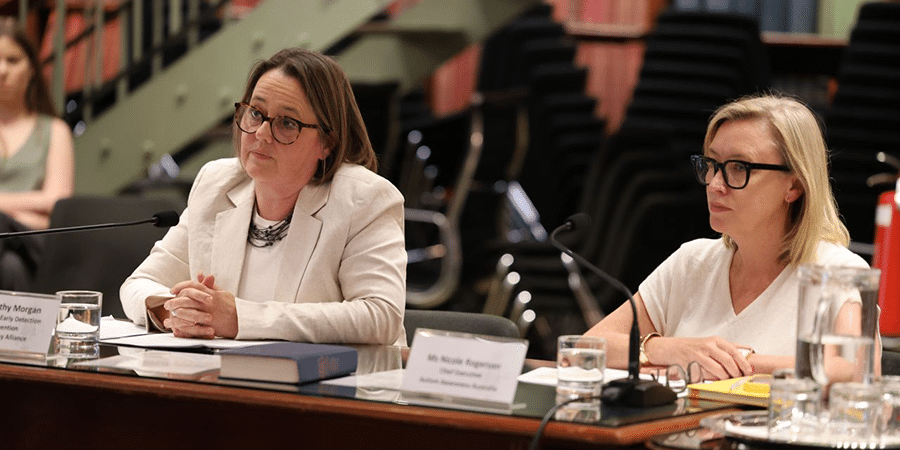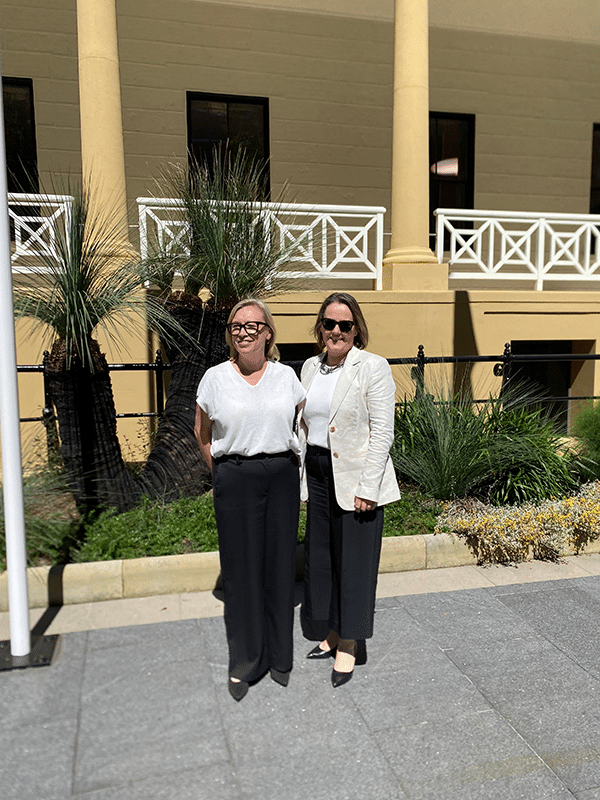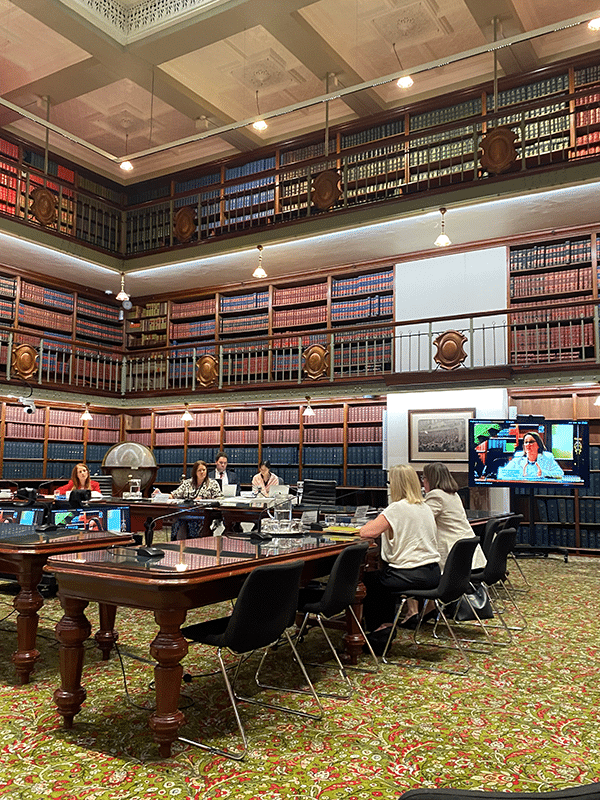
Adj. A/Prof Morgan was invited to provide testimony to the NSW Legislative Assembly Committee on Community Services this week alongside leading experts from across the childhood and disability sectors.
The inquiry is focused particularly on funding for early intervention programs and screening to ensure children are given support for developmental issues, as well as a focus on ensuring infants from vulnerable communities are given appropriate support.
Speaking alongside Autism Awareness Australia CEO Nicole Rogerson, A/Prof Morgan outlined the breakthroughs made in cerebral palsy research in the last twenty years and the need to support these advancements with resources to ensure all families can benefit from advancements in early diagnosis and intervention.
“We can now diagnose CP with 98% certainty at just three months of age if we use the right assessments. Early diagnosis means an opportunity to deliver evidence-based early intervention, altering the lifelong developmental trajectory of infants with CP and supporting their families, who we know to be at greater risk of mental health challenges.
“In spite of this, three-quarters of infants with CP are still not diagnosed until after six months of age,” said A/Prof Morgan.
CPA has proposed three recommended solutions to ensure all families in NSW have access to a brighter future:
In the hour-long session, A/Prof Morgan answered a wide range of questions on the current early screening pathway, CPA’s work with Neonatal Intensive Care Units across NSW, culturally and linguistically diverse communities, the role of AI in early diagnosis and how CPA supports families during their diagnosis journey and beyond.
“While there are definitely families who find the whole diagnostic process anxiety-producing, the vast majority of families want the best for their child. At the end of the day, information is power and people want the information that is relevant for their child. We just need to support them in the right way and changing the narrative.”
Read the full submission made to the committee by Cerebral Palsy Alliance here.
The parliamentary inquiry continues into 2025, with a full report to be handed down next year – find out more here.

